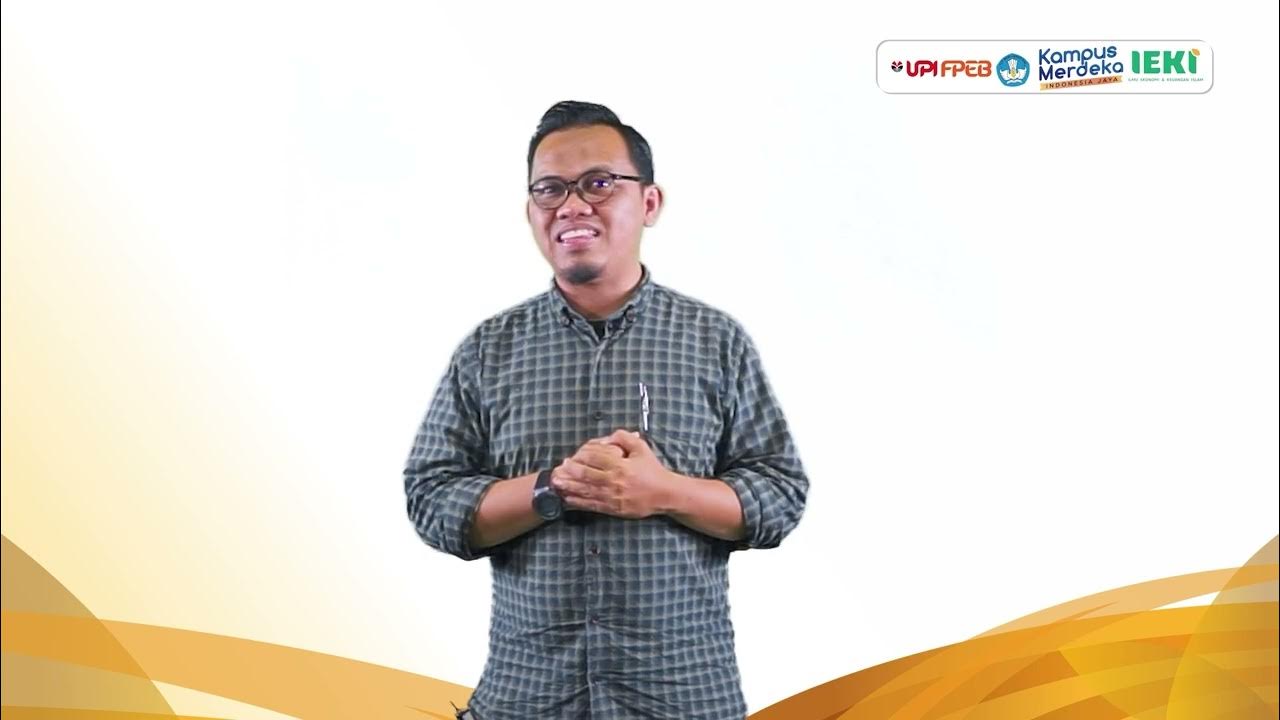PERBANDINGAN SISTEM EKONOMI ISLAM, KAPITALIS, DAN SOSIALIS
Summary
TLDRIn this video, the speaker introduces the concept of Islamic economics, contrasting it with capitalist and socialist systems. Islamic economics prioritizes social welfare, with its foundation in the Quran and Hadith, while capitalism focuses on profit, and socialism emphasizes government control. The speaker discusses key principles of Islamic economics, such as ethical transactions, zakat (charity), and various contracts (Akad) like **Qard** (loans), **Ariyah** (use of goods), and **Waqf** (endowments). Ultimately, the video highlights how Islamic economics integrates moral guidelines into economic activities for the benefit of society.
Takeaways
- 😀 Islamic economics is based on the teachings of the Qur'an and Hadith, prioritizing the well-being of the community (umma).
- 😀 Unlike capitalism, which is profit-driven, Islamic economics emphasizes communal welfare over individual wealth accumulation.
- 😀 Islamic economics allows freedom in economic activities as long as they comply with halal (permissible) practices.
- 😀 In capitalism, economic freedom is not constrained by ethical considerations, while Islamic economics has strict ethical guidelines.
- 😀 Socialism limits individual economic freedom, with the state controlling most aspects of economic activity.
- 😀 Wealth in Islamic economics is not fully owned by individuals but is shared through mechanisms like zakat (charity).
- 😀 Capitalism sees private ownership of wealth, which can lead to inequality, whereas Islamic economics emphasizes sharing wealth to reduce disparities.
- 😀 In socialism, the state owns the wealth, which contrasts with the Islamic view that wealth belongs to individuals but must be shared with others.
- 😀 Islamic economics includes specific contracts (akad) like loans, guarantees, deposits, gifts, and others that ensure fairness and transparency in transactions.
- 😀 Zakat, a form of obligatory charity, is a cornerstone of Islamic economics, ensuring that wealth is distributed to those in need.
- 😀 The key contracts (akad) in Islamic economics include loan agreements, property deposits, gifts, and wakaf (endowment), which help regulate economic activities among Muslims.
Q & A
What is Islamic economics?
-Islamic economics is a system based on the teachings of Islam, aiming to promote social welfare and justice. Unlike capitalist systems focused on profit and socialist systems with government control, Islamic economics prioritizes the well-being of the community.
How does Islamic economics differ from capitalist and socialist systems?
-Islamic economics emphasizes the welfare of society and follows the principles of the Quran and Hadith, unlike capitalism, which is profit-driven, and socialism, where wealth is largely controlled by the government.
What is the foundation of Islamic economics?
-The foundation of Islamic economics is based on the Quran and Hadith, which provide guidance on ethical financial practices and the distribution of wealth.
What is the role of freedom in Islamic economics?
-Islamic economics allows individuals to engage in economic activities but with the condition that all actions must adhere to halal (permissible) and haram (forbidden) guidelines, promoting ethical transactions.
How does Islamic economics view ownership of wealth?
-In Islamic economics, wealth is not solely owned by individuals but is viewed as a trust from Allah. There is a responsibility to share wealth, which is why zakat (charity) is an obligatory practice.
What is zakat, and why is it important in Islamic economics?
-Zakat is a mandatory form of charity in Islam where a portion of a person’s wealth is given to those in need. It is crucial for wealth redistribution and helps reduce economic inequality in society.
What is the primary difference between Islamic economics and capitalism regarding profit?
-In Islamic economics, the focus is on ensuring fairness and social welfare, whereas capitalism is primarily profit-oriented, often without regard for ethical or social consequences.
What are some key contracts in Islamic economics?
-Some key contracts in Islamic economics include Qardh (interest-free loan), Wakalah (agency agreement), Rahn (collateral for loans), and Waqf (charitable endowment). These contracts promote transparency and fairness in transactions.
How does Islamic economics regulate economic activity compared to socialism?
-In socialism, the government has significant control over economic activities, while in Islamic economics, individuals have freedom, but they must follow ethical guidelines laid out by Islamic law, such as ensuring transactions are halal.
What is the role of government in Islamic economics?
-In Islamic economics, the government plays a role in ensuring that economic activities align with Islamic values, such as promoting justice, enforcing zakat, and preventing harmful practices like interest-based transactions (riba).
Outlines

This section is available to paid users only. Please upgrade to access this part.
Upgrade NowMindmap

This section is available to paid users only. Please upgrade to access this part.
Upgrade NowKeywords

This section is available to paid users only. Please upgrade to access this part.
Upgrade NowHighlights

This section is available to paid users only. Please upgrade to access this part.
Upgrade NowTranscripts

This section is available to paid users only. Please upgrade to access this part.
Upgrade NowBrowse More Related Video
5.0 / 5 (0 votes)





